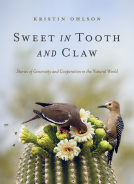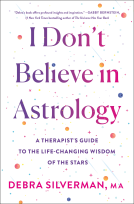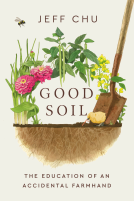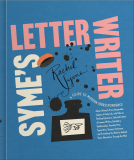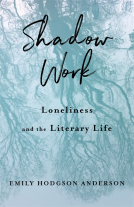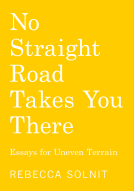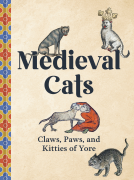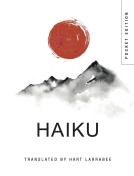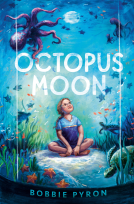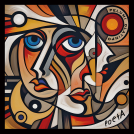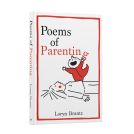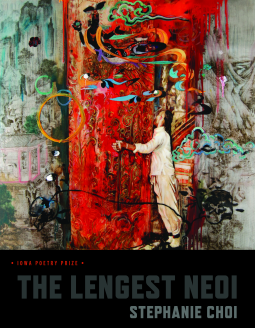
The Lengest Neoi
by Stephanie Choi
This title was previously available on NetGalley and is now archived.
Send NetGalley books directly to your Kindle or Kindle app
1
To read on a Kindle or Kindle app, please add kindle@netgalley.com as an approved email address to receive files in your Amazon account. Click here for step-by-step instructions.
2
Also find your Kindle email address within your Amazon account, and enter it here.
Pub Date May 06 2024 | Archive Date May 06 2024
University of Iowa Press | University Of Iowa Press
Talking about this book? Use #TheLengestNeoi #NetGalley. More hashtag tips!
Description
Advance Praise
“The Lengest Neoi is a shock to the senses: reminding readers that to write and live through / amid / between languages is to make new combinations of reality at every turn and that it is a chance to leave the ordinary dimensions of poetics / experience in the dust. Tech fails disconnect a grandmother from her granddaughter, and language play reveals a dramatic history of a family name. Poet Stephanie Choi, having connected body and mind through time and generations, mother tongues and lost lineages, can also make prismatic, melodic, gorgeous stories in emails, crossword puzzles, text chains, lists, and laments. This poet is wily, radical, fluidly ingenious with words, image, emotion. She has to be: there are so many ways to erase Asian American life / perspective / creations, to knock down each individual granddaughter, erase each artist. This poet reinscribes all with nuanced brilliance, photographic sensory memory, and fierce love. She must attend to what needs attention: fix the spine, fix the teeth, speech therapy to fix the impediment. The poet emerges with a voice that has no interest in being fixed: This poet can see from the perspective of her lineage/languages, can see much farther into the past, throw her voice far into the future.”—Brenda Shaughnessy, judge, Iowa Poetry Prize
“This is an ambitious debut that brings together issues of language loss through assimilation and acculturation, the connection between race and disability, and issues of transcultural Asian and Asian American identity and representation. In a nation where the Asian individual is not always seen as a separate identity but a metonym for a larger nation and community, how does the second-generation Chinese American distinguish herself as a person with agency and particularity, even as she respects that her condition has been shaped by and fundamentally connected to larger historical forces? Likewise, how might a particular physical disability, such as a speech impediment, intersect with socially imagined and reinforced disabilities, such as racial or sexual difference? Formally playful, intellectually rich, Choi’s poems deftly explore these and other issues in devastating but also imaginatively playful forms that reveal the many identities a hyphenated self must inhabit and traverse.”—Paisley Rekdal, University of Utah
“‘Remnants, I remember thinking, was a good word,’ writes Stephanie Choi in her assured debut, The Lengest Neoi. Indeed, this collection gathers remnants, which is to say proof of loss. Lyric after precise lyric, what stays—an infant’s teeth, blight-marred tree stumps, the poet’s black hair, a back brace. Even ‘Choi’ becomes what’s left, rather than what is, cast-off of a past her tongue can only name, not pronounce. The elegiac mood permeates as parents of parents fret after their children of children, imagining death as present as weather, present in their absence. With crystalline yearning, Choi maps the gaps between herself and her family, distances like blank lines in a poem; she, too, a remnant, searching for all she’s lost.”—Douglas Kearney, author, Sho
“How does the past live on inside us? This is an illuminating collection of loss and location, about what’s revealed in mistranslation, and about how to make sense of the many pasts that inform our fate, without ever constricting our future. Stephanie Choi’s work is a bright reckoning with history and identity, discovery, grief, and love—and I hope this book is only the first of many more to come.”—Joshua Marie Wilkinson, author, Bad Woods
“Choi’s debut collection examines self, identity, language, and what it means to meet or subvert expectations as well as what each might signal when in or out of alignment with one another. These poems push against standard conventions of form and line, using crossword puzzles, emails, and voice messages to weave a wide and piercing translation of loss, seeing, and deep and persistent love.”—Booklist
Available Editions
| EDITION | Other Format |
| ISBN | 9781609389512 |
| PRICE | $22.00 (USD) |
| PAGES | 94 |
Links
Available on NetGalley
Featured Reviews
 Edie C, Reviewer
Edie C, Reviewer
Reading is a subjective experience. It isn't just the reader, it is what else is going on in the reader's life at the time. I often find myself reading books in conversation with each other, usually by happenstance. I read How High We Go in the Dark by Sequoia Nagamatsu for the local library's book club at the same time I was reading The Lengest Neoi and now I cannot separate the two experiences. Both explore the immigrant experience in a variety of ways, holding it up to the light and looking closely at the refractions. Both invite readers to confront their own family dynamics. The very particularity of the situations described, leads to a universality of experience. I do not know how I would have read either book without the two playing off of each other, together they created an emotional tour de force. Thank you to Stephanie Choi, University Iowa Press, and NetGalley for the eARC.
 Brice M, Reviewer
Brice M, Reviewer
Thanks to NetGalley and University of Iowa Press for the ARC!
I really enjoyed this! I’m fascinated by poetry that uses language to consider language, and that’s a central part of "The Lengest Neoi."
In a way, this is a very small collection, ranging widely in topics but remaining intimate in its scope. I can see some readers perceiving the book as having a lack of focus, but I think instead it is poetry as exploration, using the instability and dynamism of the form as a mirror for questions of identity.
I’ve never seen so many poems about dentistry and scoliosis in one place, but they begin to converse with the linguistic concerns. As we read about reshaping a too-small mouth with headgear and a misaligned spine with a brace, we also begin to consider the way language fits—or doesn’t fit—within the speaker’s voice. It’s an effective way of adding materiality to abstraction.
One of my favorite pieces is “When I Watched In the Mood for Love at a Bar in Ipoh, Malaysia.” Here, all the themes of language, memory, maturity, and identity coalesce into a kaleidoscopic image reminiscent of the film it references. It’s a triumph of a poem, and I feel a bit mystified by its existence. I think the best poems feel summoned and unwritten, and Stephanie Choi definitely embodies that here.

